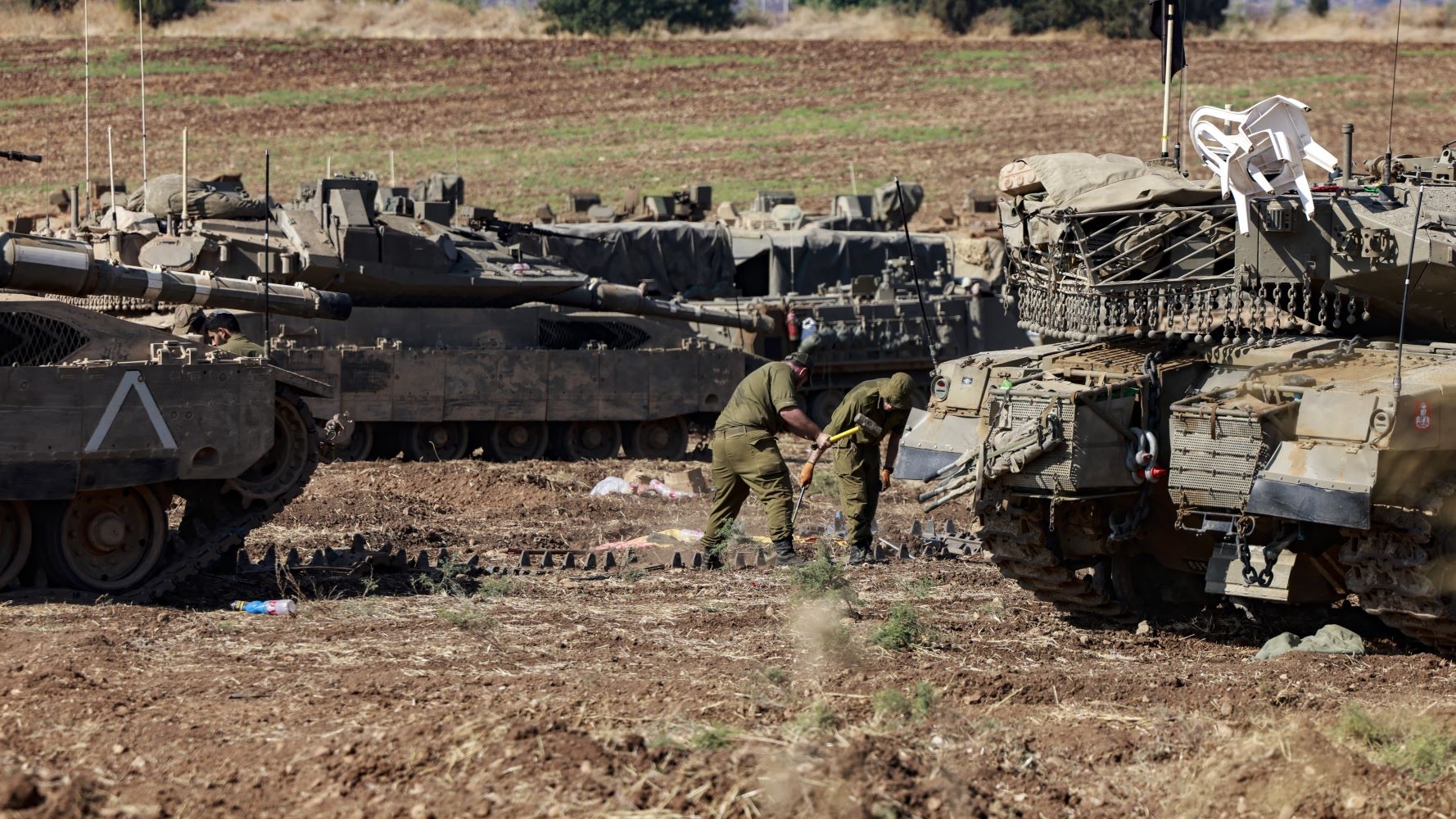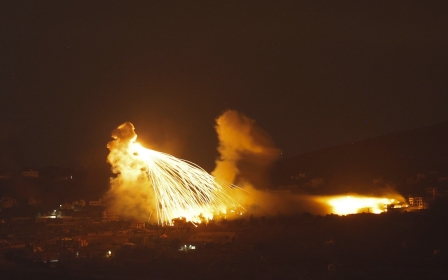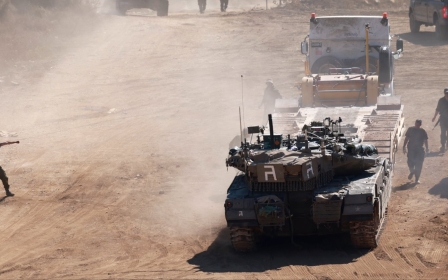Israel's ground invasion of Lebanon: What do we know so far?

Reports flooded across the media on Monday evening suggesting Israel had launched a ground invasion of Lebanon.
Israel claimed that the operation would be "limited" which was met with scepticism in some quarters, but so far it appears that there has been only a relatively small incursion across the border with troops returning back to Israel.
A Lebanese security official told Reuters that raids by Israeli troops only made it a short distance into the country.
No direct clashes with Hezbollah fighters were reported and the official said that despite repeated Israeli air strikes on Beirut, a broader operation targeting the capital was "not on the table".
Though many expect an expanded ground invasion by Israel is still on the cards, as of yet such fears appear to be premature.
New MEE newsletter: Jerusalem Dispatch
Sign up to get the latest insights and analysis on Israel-Palestine, alongside Turkey Unpacked and other MEE newsletters
Middle East Eye takes a look at what we know so far.
What did Israel do?
The Israeli military said its forces launched a "targeted and limited" invasion of southern Lebanon late on Monday.
A statement from the Israeli army said that it was targeting villages in localised raids near the boundary that "pose an immediate and real threat to Israeli settlements on the northern border".
Earlier on Monday, Lebanese troops pulled back five kilometres from their positions on the southern border while the Israeli military declared three areas in northern Israel as "closed military zones".
Lebanon's National News Agency reported that Israeli forces attacked the towns of Bint Jbeil, Tayri, Kounine and Blida, all just north of the border with Israel.
On Tuesday, the Israeli military urged residents of more than 20 towns in southern Lebanon to evacuate immediately.
What is happening now?
Israeli army spokesman Avichay Adraee said on Telegram that "intense fighting is taking place in southern Lebanon," while Hezbollah said it had twice targeted a "movement of enemy soldiers in" the northern Israeli town of Metula "with artillery shells".
Despite this, the Lebanese group denied on Tuesday that Israeli forces had entered Lebanon.
Muhammad Afif, Hezbollah's media relations officer, told Al Jazeera any claims of cross-border Israeli raids are "false".
"No direct ground clashes have occurred between the resistance fighters and the occupation forces yet," Afif said.
Israel announced a ground invasion of southern Lebanon late on Monday. However, Lebanese reports stated that there were no confirmations yet that Israeli troops had entered Lebanon. pic.twitter.com/KqZlh2JFnv
— Middle East Eye (@MiddleEastEye) October 1, 2024
He added that Hezbollah fighters were ready for the ground assault and vowed to "inflict the greatest losses on enemy forces that attempt to enter Lebanese territory".
UN peacekeepers on Tuesday morning also said there was no Israeli ground incursion in south Lebanon "right now".
How has the international community responded?
Despite the apparently limited nature of Israel's attack, much of the international community has continued to warn against further action.
The UN on Tuesday warned against a "large-scale ground invasion".
"With armed violence between Israel and Hezbollah boiling over, the consequences for civilians have already been terrible," Liz Throssell, spokesperson for the UN Human Rights Office, told reporters in Geneva.

"And we fear a large-scale ground invasion by Israel into Lebanon would only result in greater suffering."
A number of Israel's regional neighbours and European states also warned against an extended ground operation into Lebanon.
Turkey's foreign ministry said that the reported invasion of Lebanon was as an illegal attempt at occupation, and warned it was "highly likely" that a new wave of refugees would emerge from it.
Spain also said Israel should halt its ground offensive in Lebanon, while Russia said that it condemned "strikes against a sovereign state".
Jordan's prime minister said on social media that his government "stressed the necessity of stopping the aggression on Gaza and Lebanon and the violations in the West Bank".
By contrast, the US has said it supports the Israeli operations to remove Hezbollah positions. The White House's National Security Council said in a statement on Tuesday that it supported Israel's "right to defend itself against Hezbollah and all Iranian-backed terror groups" while urging against "mission creep".
However, a senior Israeli official also accused the US of endangering Israeli soldiers by leaking plans for a ground operation.
"This was done even though the US supports the operation, but it is clear to us that the US is worried - and therefore they outed the operation to try to limit it," he told Kan news.
Middle East Eye delivers independent and unrivalled coverage and analysis of the Middle East, North Africa and beyond. To learn more about republishing this content and the associated fees, please fill out this form. More about MEE can be found here.




